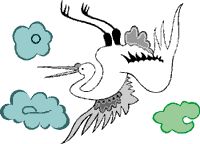
Not
Losing Myself
 Structure
of this Site Structure
of this Site
 About
the Grand Master : Lee, Kwang Hee. About
the Grand Master : Lee, Kwang Hee.
 About
the author : Lee, Chang Hoo. About
the author : Lee, Chang Hoo.
 Introduction
of Taekwondo Bible, Vol.1 Introduction
of Taekwondo Bible, Vol.1
 1.
What is Taekwondo Philosophy? 1.
What is Taekwondo Philosophy?
 2.
What is the Philosophical Principle of Taekwondo(PPT)? 2.
What is the Philosophical Principle of Taekwondo(PPT)?
 3.
What are the Relations between Taekwondo Philosophy and Traditional
Oriental Philosophy 3.
What are the Relations between Taekwondo Philosophy and Traditional
Oriental Philosophy
 4.
What Concepts of Oriental Philosophy to Explain Taekwondo Philosophy? 4.
What Concepts of Oriental Philosophy to Explain Taekwondo Philosophy?
 5.
What Constitutes the Entire Contents of PPT? (Rough Contents) 5.
What Constitutes the Entire Contents of PPT? (Rough Contents)
 6.
What Are the Basic Theoretical Schemes of Taekwondo Philosophy? 6.
What Are the Basic Theoretical Schemes of Taekwondo Philosophy?
 7.
What is Taekwondo? 7.
What is Taekwondo?
 Related
philosophies Related
philosophies
 Korean
traditional philosophy Korean
traditional philosophy
 Taekwondo
Poems : A Good Introduction of this book is those Poems Taekwondo
Poems : A Good Introduction of this book is those Poems
 There are some
articles on Taekwondo Philosophy. Almost of them suggest Taoism, Buddhism,
or confusionism or something else as Taekwondo philosophy. But they
don't serve good reason why they can be the philosophies of Taekwondo.
In fact and in many cases, almost of them are not the Taekwondo philosophies
but rather, another kinds of philosophical dogmas only decorated with
Taekwondo terms or those applied to Taekwondo. Reading those articles
of Taekwondo philosophy you may not be able to develope your Taekwondo,
nor even to get better understanding of why you have to move such as
you've learned in Taekwondo class. If then, this shows they do not concern
Taekwondo in real. Then they are nothing but unnecessary complexity
of difficult concepts. There are some
articles on Taekwondo Philosophy. Almost of them suggest Taoism, Buddhism,
or confusionism or something else as Taekwondo philosophy. But they
don't serve good reason why they can be the philosophies of Taekwondo.
In fact and in many cases, almost of them are not the Taekwondo philosophies
but rather, another kinds of philosophical dogmas only decorated with
Taekwondo terms or those applied to Taekwondo. Reading those articles
of Taekwondo philosophy you may not be able to develope your Taekwondo,
nor even to get better understanding of why you have to move such as
you've learned in Taekwondo class. If then, this shows they do not concern
Taekwondo in real. Then they are nothing but unnecessary complexity
of difficult concepts.
Now, we have to find its own philosophy in Taekwondo
itself. We have to interpret the philosophical meanings out in the motions
of Taekwondo and not somewhere else. It may be expressed in terms and
concepts of Taoism, Buddhism or something else, but there must be obvious
distinctions between the true Taekwondo philosophy expressed through
concepts of other kind of philosophy and the philosophical dogmas that
have no concern with Taekwondo in spite of their decorations of Taekwondo.
If you saw true Taekwondo Philosophy you, reading it over and over again,
would be able to improve your Taekwondo trainings, to correct your faults
in Taekwondo skills, to understand why you have to move such as you've
learned, and to extend your life applying your Taekwondo Knowledge to
everything around you. It would be possilble if you understand the profound
principles of Taekwondo, which are somewhat abstract, so difficult,
though. (If this article is too difficult for you, refer to the summary
and grasp the whole conception at first.) All of your Taekwondo trainings
will be helpful for that understanding, then.
The first purpose of "Philosophical Principles
of Taekwondo" is to explain the underlying principles of Taekwondo
in philosophical concetps at first. The arguments in this article can
be confirmed in your or your Master's motion and skills, although they
do not explain them explicitly. Each man explains same thing in his
own way, so your Taekwondo master's explanations might seem different
from that here about a thing. However, if you can read his implications
between the words, you can also see them same. Because Taekwondo is
one.
The second is to help you judge most things about your
Taekwondo ; why you have to practice that way or what is right and what
is wrong among what you can imagine or think on Taekwondo so that you
can practice Taekwondo better with standards and reasons. Sometimes
blind practices are helpful since they improve patience, which is necessary
in martial arts, but they are not all. We can find many cases where
good understandings improve our Taekwondos innovationally. Especially,
when you've grown up your level of Taekwondo over a certain degree those
understandings will be necessary.
This article "Philosophical Principles of Taekwondo"
is an achievment of integration of all aspects of Taekwondo from the
oriental philosophical point of view. Everyone has investigated the
differences between the oriental and western philosophies, but they
were not explained yet radically and distinctively, as I know. This
article explains it in a way. But you might not be satisfied only with
the interpretations in it because it doesn't intend mainly to explain
that theme. Hoewever, it may be helpful for those who are interested
in that theme, I guess. If you are much interested in this, refer to
commentaries.
Anyway, the values of this article can be counted only
by all of you who read it after all.
|